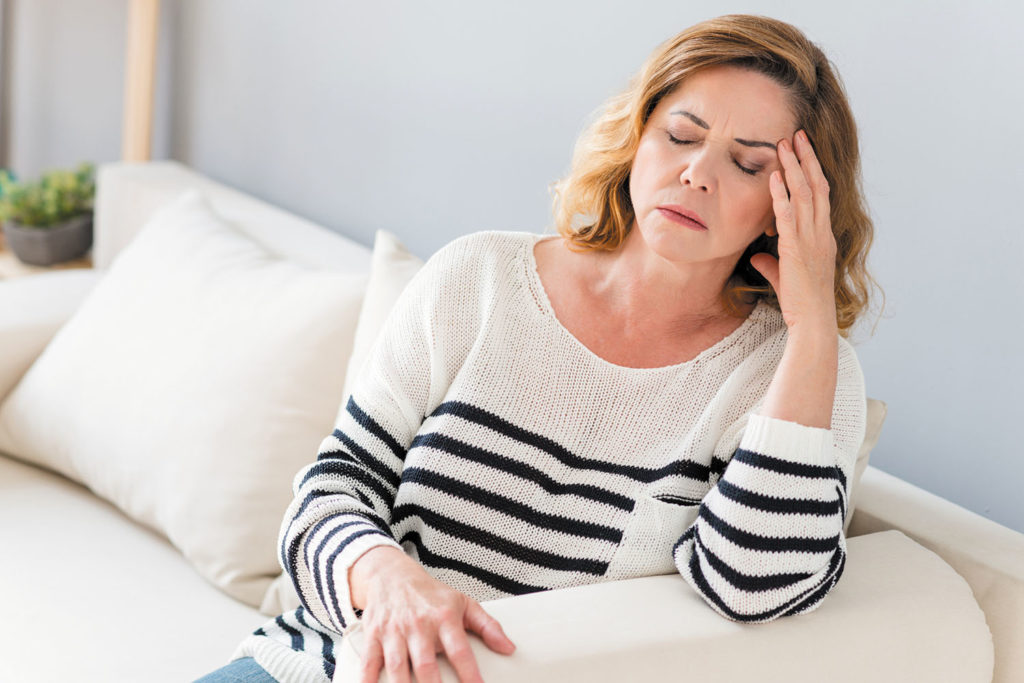I remember that when I was diagnosed with a migraine 17 years ago, I was totally unaware of the terrible pain I would suffer until today. Living with migraines is an overwhelming journey. Migraine is more than just a headache. It is a complex neurological disorder. It is an inherited neurological disorder that is generally characterized by excessive excitability of certain areas of the brain. A migrainous brain is different, or what happens in the brain to trigger a migraine, we know that people with migraines are more susceptible to the influence of transient factors, called “triggers”, which increase the risk of having a migraine attack.

Migraine triggers differ from person to person. Light, food, stress, sounds and time are some of the factors that trigger migraines. Once a migraine attack has started, there are very few ways to stop it. It is therefore better to prevent migraine attacks than to relieve the symptoms when they occur.
Here are some of the ways to manage migraine:
Like the number of triggers, even the ways to manage migraines differ from person to person. You can try different methods and choose the one that works best for you. Talk to your doctor before trying any new procedure or technique.
Environment: Many migraine triggers are light and sound. Therefore, you should try to stay away from places where the light is too bright and there is too much noise. If you can’t avoid these places completely, at least keep your room dark, quiet and cool, which will help you relax.
Exercise: All doctors agree that exercise helps to relieve some of the symptoms of migraine. Exercise helps relieve stress, fights depression and releases endorphins that make you happy.
Supplements: Magnesium is known as a muscle relaxant that relieves pain. Sometimes a magnesium deficiency can cause migraines and taking supplements for them is known to help relieve migraine pain. Vitamin B2 or riboflavin also has a similar action and helps to relieve migraine pain. Ask your doctor before you start taking supplements.

Eating Habits: Migraine attacks can occur when you are hungry for a prolonged period of time. So be consistent with your meals, eat them at the same time. Also, never skip breakfast; this will prevent many attacks that start with hunger. Since food is the trigger for many seizures, identify your food trigger and make sure you stay away from it. It is recommended to stay away from sugar, caffeine, cheese, chocolate, citrus fruits, which are common triggers.
Avoid the sun: For sun-sensitive people, going out in the sun can cause piercing headaches. Also, whenever you go out in the sun, wear an umbrella or hat. Use sunglasses that protect against UVA rays.
Stress: Stress is an essential trigger for migraine headaches, so you need to be effective at managing stress. A relaxed, positive and optimistic attitude helps to manage migraines.
Ginger: For people suffering from frontal headaches, ginger helps to relieve the pain fairly quickly. Many people have experienced that taking half a teaspoon of freshly ground ginger can stop the migraine before it starts. Even vomiting and nausea are greatly helped by ginger. Keep in mind that ginger is only effective in two out of three people and causes abdominal discomfort in others.
Sleep: For migraine sufferers, everything must be kept in balance, including sleep. You must be consistent with your sleep time and avoid staying up late.
Keep a migraine diary: Here you record the time of the attack, possible triggers and the intensity of the attack. Reading these notes will help you identify the pattern and help you better manage your migraine.
When you have a migraine attack:
* Wet tissue: Using a damp cloth on your face and neck will relieve sore muscles and symptoms.
* Pressure on nerves: Sometimes pressure on the nerve that hurts the most helps to relieve the pain.
* Between eye socket and eyebrow: First, find the nerve between the upper eye socket and the eyebrow. By pressing on this nerve, your body will send natural painkillers. Surprisingly, this painkiller is more powerful than morphine.


